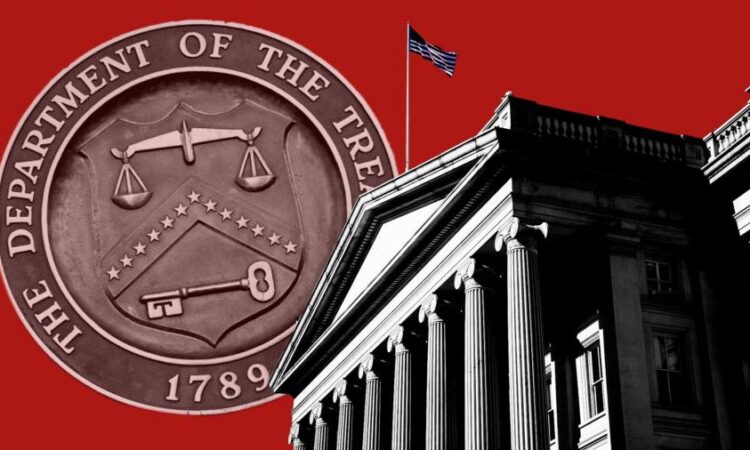
Receive free Markets updates
We’ll send you a myFT Daily Digest email rounding up the latest Markets news every morning.
Global stocks and bonds sank on Thursday as investors braced for further interest rate rises in the world’s largest economy following a hawkish message from the Federal Reserve and some robust US economic data.
The moves began in Asian and European trade after Wednesday’s minutes from the Fed’s latest meeting showed officials intend to resume their interest rate rises despite pausing their programme of monetary tightening in June. The sell-off picked up speed, pushing US two-year borrowing costs to their highest level since 2007 after data showed US companies added the most jobs in more than a year in June, further underlining the resilience of the labour market.
Wall Street’s benchmark S&P 500 dropped 0.9 per cent and the tech-focused Nasdaq Composite slid 1 per cent at the New York opening bell, as both indices extended losses from the previous session.
In Europe, the region-wide Stoxx 600 was down 1.7 per cent in early afternoon trade, close to its lowest point since May. Earlier in Asia, Hong Kong’s Hang Seng index fell 3 per cent and the Chinese CSI 300 lost 0.7 per cent.
The yield on the policy-sensitive two-year Treasury note rose 0.13 percentage points to a 16-year high of 5.08 per cent. The yield on the benchmark 10-year note rose 0.1 percentage point to 4.05 per cent. Bond yields rise as prices fall.
Two-year German debt yields, viewed as a benchmark for the eurozone, also jumped, rising 0.075 percentage points to 3.36 per cent, while those on two-year UK debt rose 0.1 percentage points to 5.48 per cent, the highest level since 2008. Investors also cranked up their bets on further Bank of England rate rises on Wednesday, with markets now pricing in a peak in borrowing costs of 6.5 per cent early next year.
“Markets are pushing yields higher, and the resilience of the global economy means central banks are encouraging them,” said Mike Riddell, a bond fund portfolio manager at Allianz. “The global economy will break eventually, and the higher rates go, the bigger the cracks will be. But nobody knows when things will really break.”
The minutes from the June meeting of the rate-setting Federal Open Market Committee signalled that “almost all” participating officials believed additional increases in the Fed’s benchmark rate would be “appropriate”. They also characterised inflation as “unacceptably high”.
The June meeting had marked a break from the Fed’s relentless drive to bring down inflation from a multi-decade high last year. It was the first time the US central bank opted to keep the federal funds rate unchanged in 10 consecutive meetings.
The Vix volatility index, popularly known as “Wall Street’s fear gauge”, jumped to 15.5, as investors fretted that a prolonged period of high borrowing costs could soon weigh on the US economy.
Investors will pay close attention to US payrolls data released on Friday, with economists polled by Bloomberg tipping that the pace of hiring slowed in June. However, the median forecast has underestimated jobs data for 14 consecutive months.
European property companies led declines in the region, and the Stoxx 600 Real Estate index dropped 3 per cent, as investors feared that high interest rates around the world could hit house prices and limit bank lending. France’s Cac 40 fell 2.3 per cent and London’s FTSE 100 dropped 1.7 per cent.
Sentiment in Hong Kong was also weighed down by growing expectations of monetary easing that could squeeze Chinese banks’ returns. The Hang Seng Mainland Banks index was down almost 6.5 per cent, with some of the banks trading ex-dividend.
“If you lower interest rates, it means banks’ profits will fall and the renminbi will test lower levels as well,” said Louis Tse, founder of Hong Kong-based Wealthy Securities. “These factors are pushing investors to sell Chinese bank stocks.”





